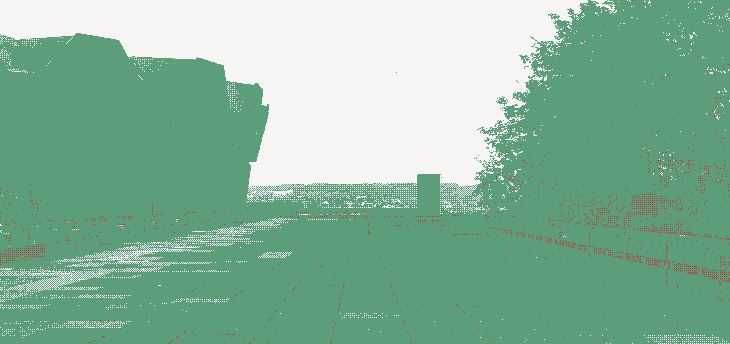
Tina Asmussen
Frederike Lange
Carlina Rossée
Peter Oakley
The Ruhr Valley is one of Germany’s key sites of industrial heritage. Following the Zeche Zollverein’s UNESCO inscription (2001) and the closure of the last coal mine (2018), the region has intensified efforts to memorialize its extractive past through heritage tourism and museums. Institutions celebrate narratives of labor and technological achievement that transformed an agrarian landscape into an industrial powerhouse. While the black coal ashes have settled upon an urban landscape shaped by waste heaps that are slowly being repopulated by humans and more-than-humans, the soils remain heavily contaminated with lead, zinc, cadmium, copper, and arsenic.
Industrial heritage frameworks treat these residues as something to manage, remediate, or exclude from their narratives. The ecological ruins left are emphasized as new biodiversity reservoirs and ecological renewal. Such erasures have material consequences for affected communities, environmental justice, and intergenerational responsibility.
Drawing on the recently funded DFG/AHRC project Toxic Heritage: Socio-natural Landscapes of Extraction and Pollution in the Harz and Cornwall (Deutsches Bergbau-Museum Bochum and Royal College of Art London), this case reconceptualizes mining heritage through an ecological lens. The Ruhr Valley offers a laboratory for examining ambivalent toxic heritage, challenging nature–culture divides by positioning toxic legacies as integral to mining heritage—an approach aligned with recent STS and critical heritage studies on “toxic commons” and “heritage ecologies” (Tsing et al. 2017; Harrison and Sterling 2020; Bangstad and Pétursdóttir 2022; Müller 2021; Ektander 2023; Kryder-Reid and May 2023).
Through a one-day site visit to Zeche Zollverein, particularly the heap behind the industrial complex, participants will engage in situated, empirical, and conceptual discussions on toxic heritage. We will collectively ask: How does erasure through remediation or regeneration unfold at Zeche Zollverein and other industrial heritage sites? How can we develop methodological tools to critically analyze toxic heritage as both material reality and contested discourse? Through field observations, collaborative discussion, and comparative analysis, our case aims to refine conceptual and empirical approaches to toxic heritage studies—examining how contamination is narrated, managed, and experienced across different temporal and spatial scales.
Participants of the case Toxic Heritage Ruhr will meet for a half-day online workshop via Zoom prior to the conference, ideally on February 27. This preparatory meeting will serve as a general introduction and to clarify the goals and program of the case. On March 26, we will start the day with seminar session at the Deutsches Bergbau-Museum Bochum (DBM). Afterward, participants will travel by van to Zeche Zollverein, where we will be familiarized with the ecologies of the heap by Oliver Balke, forester in the project Wald and Holz NRW, after which discussions and activities will continue for the remainder of the day. The session will conclude with another seminar from 4:30 to 6:00 p.m. at PACT Zollverein, our institutional partner for the day. PACT Zollverein’s emphasis on experimentation, interdisciplinarity, and collaborative formats that bridge the arts, sciences, and environmental research makes it an ideal venue for synthesizing our discussions. Participation will be limited to twenty persons. We invite contributions from scholars and practitioners in extraction, environmental history, industrial heritage, STS, political and multispecies ecologies, material culture, discard studies, and related fields—whether or not their work focuses on the Ruhr area.
References
Tsing, Anna Lowenhaupt, Heather Anne Swanson, Elaine Gan, and Nils Bubandt, eds. 2017. Arts of Living on a Damaged Planet Ghosts of the Anthropocene. Monsters of the Anthropocene. University of Minnesota Press.
Müller, Simone M. 2021. “Toxic Commons: Toxic Global Inequality in the Age of the Anthropocene.” Environmental History 26 (3): 444–50. https://doi.org/10.1093/envhis/emab014.006
Pétursdóttir, Þóra, and Torgeir Rinke Bangstad, eds. 2021. Heritage Ecologies. Routledge. https://doi.org/10.4324/9781315101019
Harrison, Rodney, and Colin Sterling, eds. 2020. Deterritorializing the Future: Heritage in, of and after the Anthropocene. Open Humanities Press. https://library.oapen.org/handle/20.500.12657/41204
May, Elizabeth, and Sarah Kryder-Reid, eds. 2023. Toxic Heritage: Legacies, Futures, and Environmental Injustice. Routledge. https://doi.org/10.4324/9781003365259
Ektander, Caroline, and Jonas Stuck 2023. “Redistribute Toxicity: an Art Intervention into the Legacy of the Inter-German Toxic Waste Trade.” Environmental Humanities (2023) 15 (3): 104-118.